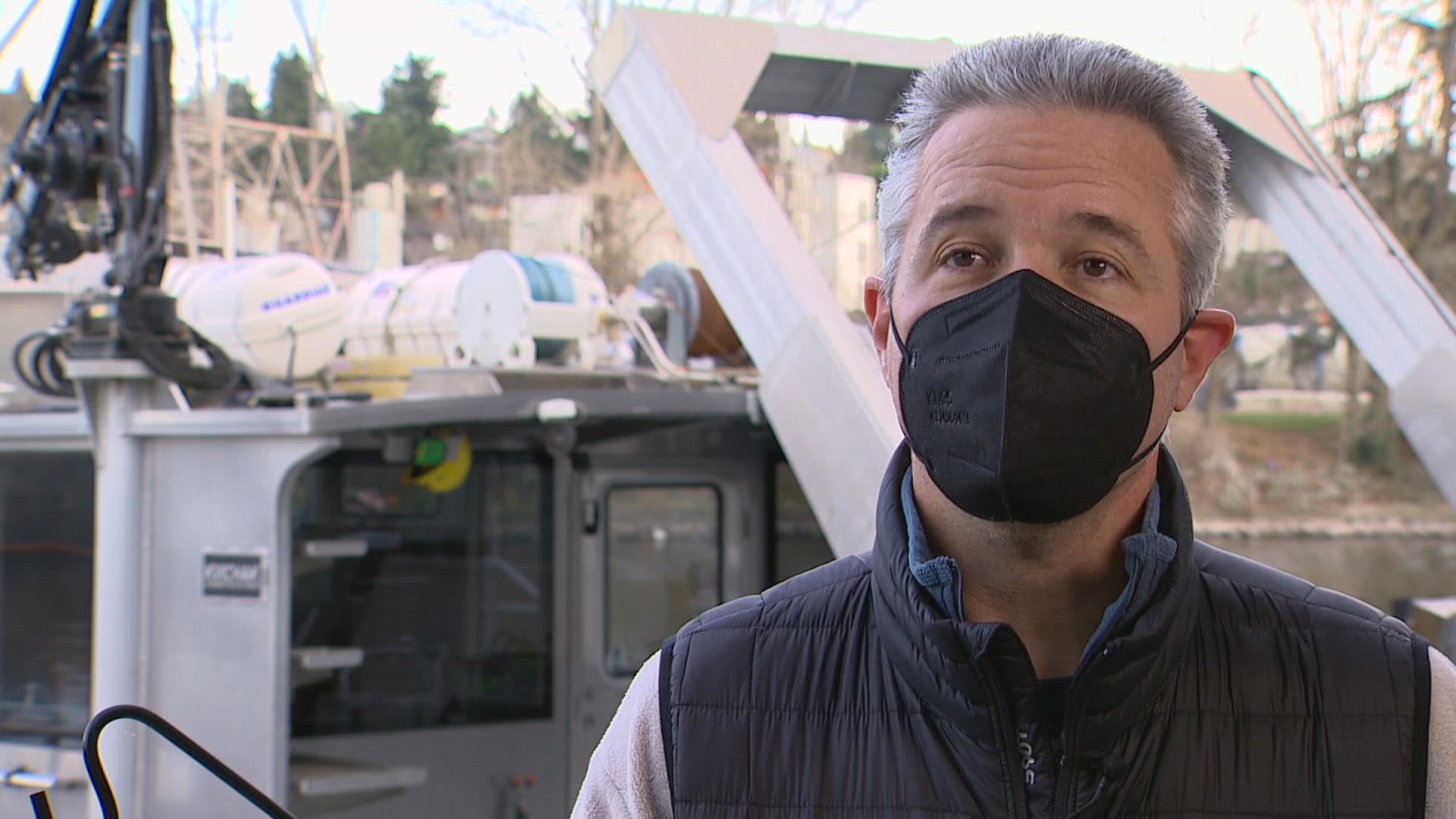EDMONDS, Wash. — Researchers deployed a buoy Tuesday that will monitor underwater noise from vessels in Puget Sound as they work to protect the local orca population.
The study by SMRU Consulting is meant to increase the frequency and quality of reports of orca sightings that are provided to pilots of large vessels so that they may voluntarily slow their speed or change course. This will reduce the amount of noise and prevent collisions, according to researchers.
The buoy was deployed from King County's SoundGuardian in winter because orcas are often found in Puget Sound this time of year feeding on salmon. Orcas rely on sound to hunt, communicate, and navigate. Noise from vessels can limit their ability to do this, according to researchers.
Jason Wood with SMRU - a consulting group out of Scotland working to understand the effects humans have on marine mammals - said noise pollution is just one of the stressors on the orcas. Others include availability and quality of food and toxins.
"It's really a complicated set of problems that these whales face," he said.
Though noise pollution is just one of the stressors, it's one that can be adjusted "fairly quickly," he said.
Southern Resident killer whales — the endangered orcas that spend much of their time in the waters between Washington state and British Columbia — depend heavily on depleted runs of fatty Chinook. Research has affirmed how important Chinook are to the whales year-round.
The Southern Resident population has struggled to grow amid food shortages and changing environmental conditions. The orcas have in recent years been at their lowest numbers since the 1970s.
“Our state-of-the-art research vessel is a valuable asset helping some of the world’s leading marine biologists work to protect Southern Resident orcas,” said King County Executive Dow Constantine. “The scientific research they produce will contribute to our collective mission to not only track the health of Puget Sound, but also ensure the survival of its marine life.”

